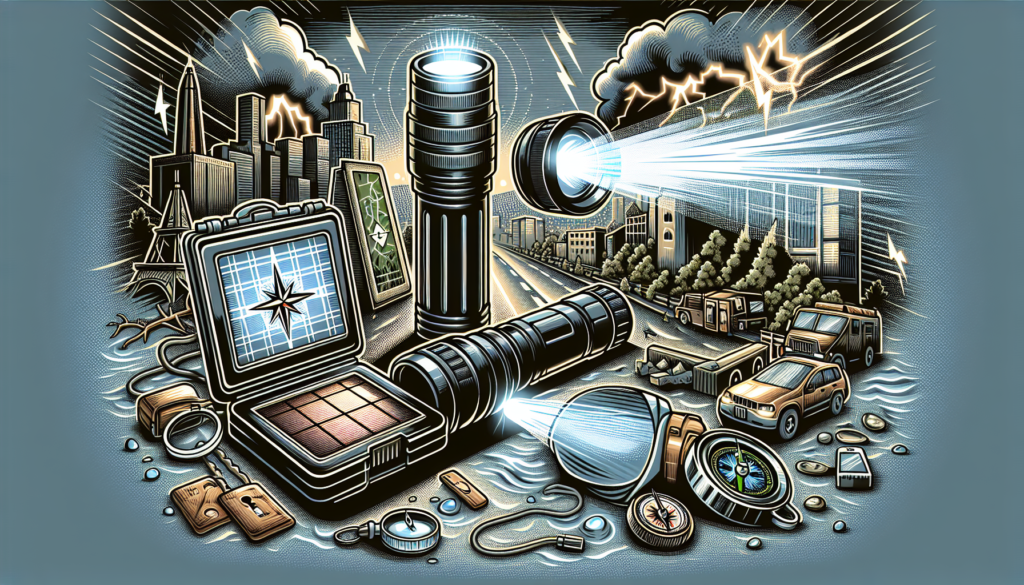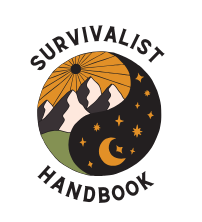In a world full of uncertainties, it’s important to be prepared for the unexpected. The article “Urban Survival Skills: Navigating Disasters and Emergencies” provides valuable insight into the essential knowledge needed to navigate through various emergency situations. Covering a wide range of topics, from building shelters and finding water to staying warm and signaling for help, these survival skills empower individuals to become self-reliant and resilient in the face of adversity. Whether you’re an adventurous soul preparing for extreme scenarios or simply want to feel equipped for life’s unpredictable twists, exploring these topics will undoubtedly provide the necessary tools to overcome challenges and emerge stronger.
Urban Survival Skills: Navigating Disasters and Emergencies
In a world where unexpected situations can arise, mastering basic survival skills offers peace of mind and the potential to save lives. These skills are essential for navigating both the wilderness and urban environments, and they cater to diverse audiences, from curious beginners seeking introductory tips to adventurous souls preparing for extreme situations. With a focus on practicality, urban survival skills provide individuals with the necessary knowledge and techniques to become self-reliant and resilient in the face of adversity. In this article, we will explore various skills and strategies to help you navigate disasters and emergencies in urban settings.
Building Shelters
In emergency situations, having shelter is crucial for protection from the elements and to ensure your safety and well-being. Urban environments may offer different opportunities for shelter compared to wilderness areas. Look for sturdy structures such as buildings, parking garages, or bridges that can provide temporary shelter. If no suitable structures are available, consider improvising with materials you can find, such as tarps, blankets, or even cardboard. It’s important to prioritize safety and avoid areas that may collapse or pose a risk to your well-being.
Finding Water and Food
Access to clean water and a source of food are essential for survival in any emergency situation. In urban environments, finding water sources can be more challenging than in the wilderness. One option is to collect rainwater in containers or makeshift containers like cans or bottles. Additionally, water can be found in swimming pools, hot water tanks, or even water heaters in abandoned buildings. However, it’s important to purify any water you collect by boiling it or using water purification tablets or filters, as urban water sources may be contaminated.
When it comes to finding food in an urban environment, it may require resourcefulness and creativity. Look for non-perishable food items in abandoned buildings, supermarkets, or convenience stores. Canned goods, dry pasta, rice, and protein bars are all good options. Consider learning about edible plants that may be available in your city, such as dandelions or certain types of mushrooms. Always be cautious of spoiled or expired food and check for any signs of contamination before consuming.

Staying Warm
Staying warm in an urban emergency is essential to avoid hypothermia and maintain your overall well-being. While buildings and structures can offer some shelter from the elements, it’s important to have additional strategies to keep warm. Layering your clothing is an effective way to trap heat and insulate your body. Use materials such as wool or thermal fabrics for better insulation. If you have access to firewood or combustible materials, you can start a fire in a safe and controlled environment. However, be mindful of fire safety and never leave a fire unattended.
Signaling for Help
In the event of an emergency, it’s important to know how to signal for help effectively. In an urban environment, there may be a higher chance of encountering other people who can provide assistance. One commonly known signal for help is the international distress signal, SOS, which can be conveyed through visual or auditory means. Use bright-colored clothing or materials to attract attention, such as a brightly colored flag or a mirror to reflect sunlight. Make loud noises, such as blowing a whistle or using a horn, to draw attention to your location. Additionally, using written messages or signs can help convey your need for assistance.

Emergency First Aid
Having basic first aid skills can be invaluable in emergency situations, especially in urban environments where medical help may not be readily available. Learning CPR, basic wound care, and how to treat common injuries such as burns or fractures can make a significant difference in saving lives. Consider taking a first aid training course and building a basic first aid kit that includes essential items such as bandages, antiseptics, pain relievers, and any necessary prescription medications.
Navigating in Urban Environments
In urban emergencies, it’s important to be able to navigate efficiently and safely through unfamiliar surroundings. Familiarize yourself with the layout of your city, including major landmarks, streets, and alternative routes. Having a map or a compass can be useful tools for navigation. Pay attention to any signs or messages from authorities regarding safe routes or evacuation instructions. Additionally, learning basic orienteering skills, such as reading a map and utilizing compass directions, can help you find your way in urban environments.
Handling Power Outages
Power outages are common during emergencies, and it’s important to know how to handle them safely and effectively. Have a backup power source, such as a generator or a power bank for your electronic devices. Stock up on batteries, flashlights, and candles for alternative lighting. Keep your refrigerator and freezer doors closed to maintain the cold temperature and prevent food spoilage. It’s also a good idea to have a supply of non-perishable food items that do not require cooking, as well as a manual can opener.
Dealing with Violence and Security Threats
In some emergency situations, violence and security threats may arise, making personal safety a top priority. Avoid confrontations and seek shelter in secure locations whenever possible. If you find yourself in a dangerous situation, assess your surroundings and seek help from law enforcement or designated safety officials. Consider learning basic self-defense techniques to protect yourself in case of physical confrontations. Stay vigilant, trust your instincts, and be aware of any potential dangers in your environment.
Managing Limited Resources
During emergencies, resources such as food, water, and medical supplies may become scarce. It’s important to manage these resources wisely to ensure their availability for an extended period. Prioritize your needs and ration supplies accordingly. Consider forming or joining a community support network to share resources and skills. Look for local organizations or emergency response groups that can provide assistance and guidance during times of crisis.
Maintaining Mental and Emotional Well-being
In high-stress situations, it’s crucial to prioritize your mental and emotional well-being. Stay connected with loved ones and support networks to maintain a sense of community and emotional support. Practice stress management techniques such as deep breathing, meditation, or engaging in activities that bring you joy and relaxation. Accept and process your emotions, and seek professional help if needed. Remember, taking care of your mental and emotional well-being is just as important as addressing your physical needs during emergencies.
By acquiring and honing urban survival skills, you empower yourself to face and overcome disasters and emergencies confidently. Whether you’re preparing for an outdoor adventure or seeking to navigate life’s unpredictable twists, knowing how to build shelters, find water and food, stay warm, signal for help, provide emergency first aid, navigate urban environments, handle power outages, deal with violence and security threats, manage limited resources, and maintain mental and emotional well-being equips you with the knowledge and resilience needed to thrive in challenging circumstances. Stay prepared, stay safe, and trust in your abilities to overcome any obstacle that comes your way.

